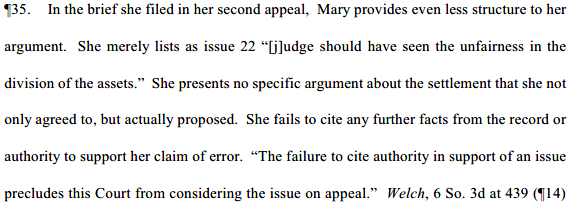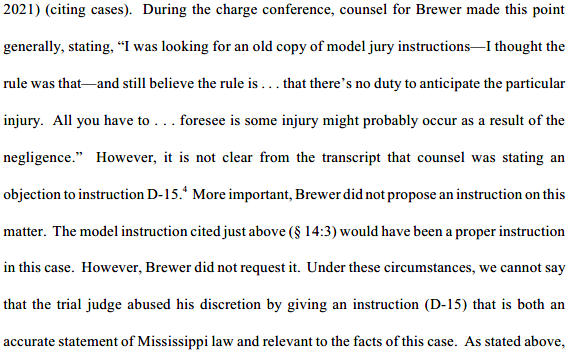The Mississippi Supreme Court took advantage of a slow inning from the Mississippi Court of Appeals and plated five opinions today to answer the COA’s two. These are big cases. There is an inverse condemnation decision, a legal malpractice decision stemming from a workers’ comp claim, a decision on whether Eight Amendment was violated by a life sentence without the possibility of parole for possession of marijuana by a habitual offender, and a case deciding whether Mississippi courts have subject-matter jurisdiction to hear claims stemming from the termination of a former employee of the Catholic Diocese of Jackson in light of the ecclesiastical abstention doctrine of the First Amendment.
City of Gulfport, Mississippi v. Cowan Road & Highway 90, LLC, 2020-CA-01286-SCT (Real Property)
Affirming on direct appeal and affirming in part/reversing in part on cross-appeal of an inverse condemnation ruling, holding that (1) the landowners were entitled to reasonable fees and costs because they fell within the purview of section 43-37-9, (2) the trial court did not abuse its discretion in awarding attorney’s fees or in reducing the attorney’s hourly rate, (3) the trial court did not abuse its discretion by not awarding prejudgement interest under section 75-17-7, and (4) the circuit court did abuse its discretion by not awarding post judgment interest.
(7-0: Chief Justice Randolph and Justice Beam did not participate.)
Lairy v. Chandler, 2019-CT-01423-SCT (Civil – Legal Malpractice)
Affirming in part and reversing in part the judgment of the Court of Appeals in a legal malpractice claim stemming from a workers’ compensation, holding that the trial court’s award for damages was sufficiently supported by the evidence and that while the plaintiff had to “pass the trial-within-a-trial test” she did not have to satisfy the “exacting statutory requirements” of the Mississippi Workers’ Compensation Act that would have applied to her workers’ compensation claim to pass that test.
(7-2: Justice Coleman dissented, joined by Justice King.)
Russell v. State, 2019-CT-01670-SCT (Criminal – Felony)
Affirming a life sentence without the possibility of parole for possession of marijuana as a habitual offender, holding that “the trial judge followed the letter of the law” and did not have sentencing discretion and that the defendant presented no evidence related to the Solem factors for an Eighth Amendment analysis.
(5-1-3: Chief Justice Randolph specially concurred with separate written opinion, joined by Justice Beam and Justice Ishee, but the Chief did not join the majority opinion. Justice Coleman dissented, joined by Justice Kitchens and Justice King.)
NOTE – This is a heavy case in terms of public policy, legal analysis, and outcome. The Court of Appeals below split 5-5. Judge Wilson wrote the main dissent, joined by Judge Westbrooks, Just McDonald, Judge Lawrence, and Judge McCarty. The grouping of judges and justices in majority and dissent is interesting as well.
Eubanks v. State, 2020-KM-00110-SCT (Criminal – Misdemeanor)
Affirming conviction of simple assault domestic violence, holding that there was no violation of the defendant’s constitutional right to speedy trial or statutory right to speedy trial, that an objection to testimony was waived because it was not asserted at trial, that the defendant did not receive ineffective assistance of counsel, that there was no error in denying his motion for judgment of acquittal notwithstanding the verdict, that the jury’s finding that the victim suffered bodily harm was not against the overwhelming weight of the evidence, that the State did not violate the defendant’s due process rights by failing to investigate and preserve exculpatory evidence, and that the trial court did not err by giving the State’s simple assault domestic violence jury instruction.
(5-4: Justice Coleman, with his white-hot dissenting pen, wrote a dissent that was joined by Justice Kitchens, Justice King, and Justice Ishee.)

Catholic Diocese of Jackson, Mississippi v. De Lange, 2021-IA-00159-SCT (Civil – Torts)
Reversing and rendering the circuit court’s denial of the defendant’s motion to dismiss claims stemming from the termination of the plaintiff, holding that the court lacked subject-matter jurisdiction under the ecclesiastical abstention doctrine of the First Amendment to the U.S. Constitution to hear the plaintiff’s claims of wrongful termination, defamation, and negligent and intentional infliction of emotional distress.
(9-0)
NOTE – I watched the oral arguments in this case and found it fascinating. It was argued well by both sides, and the bench was thoughtful and fully engaged.
Other Order
Knox v. State, 2014-DR-00849-SCT (denying rehearing)

My summaries are late because I spent much of the day lawyering in Smith County this morning.


